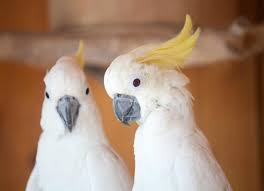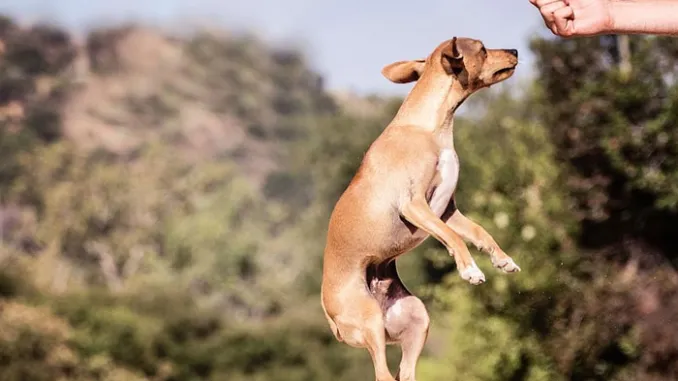
Cockatoo
Conditions of detention
Cockatoos require a spacious and secure living environment that allows for ample movement and flight. A large cage with sturdy bars is essential, as cockatoos have strong beaks and are known for their chewing behavior. The cage should be equipped with perches, toys, and various enrichment activities to keep them mentally stimulated.
Useful Fact: Cockatoos benefit from spending several hours outside their cage daily under supervision to exercise, explore, and interact with their human companions.
Nutrition and diet
A balanced diet for cockatoos includes high-quality pellets, fresh fruits, vegetables, nuts, and seeds. Leafy greens, carrots, apples, and berries provide essential vitamins and nutrients. Nuts like almonds and walnuts can be offered as occasional treats due to their high-fat content.
Useful Fact: Avoid feeding cockatoos chocolate, caffeine, avocado, and alcohol, as these can be toxic to them.
Health
Cockatoos are generally healthy birds but can be prone to certain health issues such as obesity, feather plucking, respiratory infections, and psittacine beak and feather disease (PBFD). Regular veterinary check-ups and a balanced diet are crucial for maintaining their health.
Useful Fact: Cockatoos are prone to developing fatty tumors (lipomas), so monitoring their diet and ensuring they get enough exercise is important to prevent obesity.
Grooming and care
Cockatoos require regular grooming, including nail trimming and bathing to maintain feather health. They often enjoy bathing in shallow dishes or being misted with water.
Useful Fact: Cockatoos produce a fine powder called “powder down” that helps keep their feathers clean and waterproof. Regular bathing or misting helps manage this powder and keeps their feathers healthy.
Education and training
Cockatoos are highly intelligent and benefit from training that provides mental stimulation. Positive reinforcement techniques work best, and they can learn to perform tricks, solve puzzles, and mimic sounds.
Useful Fact: Consistent training sessions that are short (10-15 minutes) and frequent are more effective and help reinforce learning and good behavior.
Toys and entertainment
Toys are essential for keeping cockatoos entertained and mentally stimulated. They enjoy a variety of toys, including puzzle toys, foraging toys, and toys that encourage chewing and manipulation.
Useful Fact: Rotate toys regularly to maintain interest and prevent boredom, which can lead to destructive behaviors like feather plucking.
Safety
Ensure the living environment is free from hazards such as toxic plants, fumes from non-stick cookware, and small objects that could be ingested. The cage should be secure with appropriate bar spacing to prevent escape.
Useful Fact: Cockatoos have powerful beaks and can chew through wood and other materials, so ensure that all cage parts and accessories are made from durable materials.
Accessories
Essential accessories include sturdy perches, food and water dishes, and a variety of toys. Natural wood perches of varying diameters are beneficial for foot health.
Useful Fact: Using perches made of different materials can help prevent pressure sores on the feet and provide exercise for the cockatoo’s muscles.
Socialization
Cockatoos require significant social interaction to thrive. They form strong bonds with their human companions and can become lonely or depressed if left alone for extended periods.
Useful Fact: Cockatoos are known for their affectionate nature and enjoy spending time with their owners, often seeking attention and interaction.
Travel and Transportation
When traveling, use a secure and well-ventilated travel cage. Acclimate your cockatoo to the travel carrier before trips to reduce stress.
Useful Fact: Cover the travel cage with a light cloth during transport to minimize stress and provide a sense of security.
Behavior and psychology
Cockatoos are intelligent and can exhibit complex behaviors. Understanding their body language and vocalizations is crucial for effective communication and care.
Useful Fact: Cockatoos are known for their loud vocalizations and can be quite noisy, especially if they feel ignored or bored. Providing attention and enrichment can help manage their vocalizations.
Legal aspects
In some areas, owning a cockatoo may require permits or have specific regulations. It is important to ensure that any cockatoos purchased are from reputable breeders and not taken from the wild, as some species are protected under international wildlife trade agreements.
Useful Fact: The Convention on International Trade in Endangered Species (CITES) lists certain cockatoo species, so it’s crucial to be aware of and comply with regulations regarding their ownership and trade.


